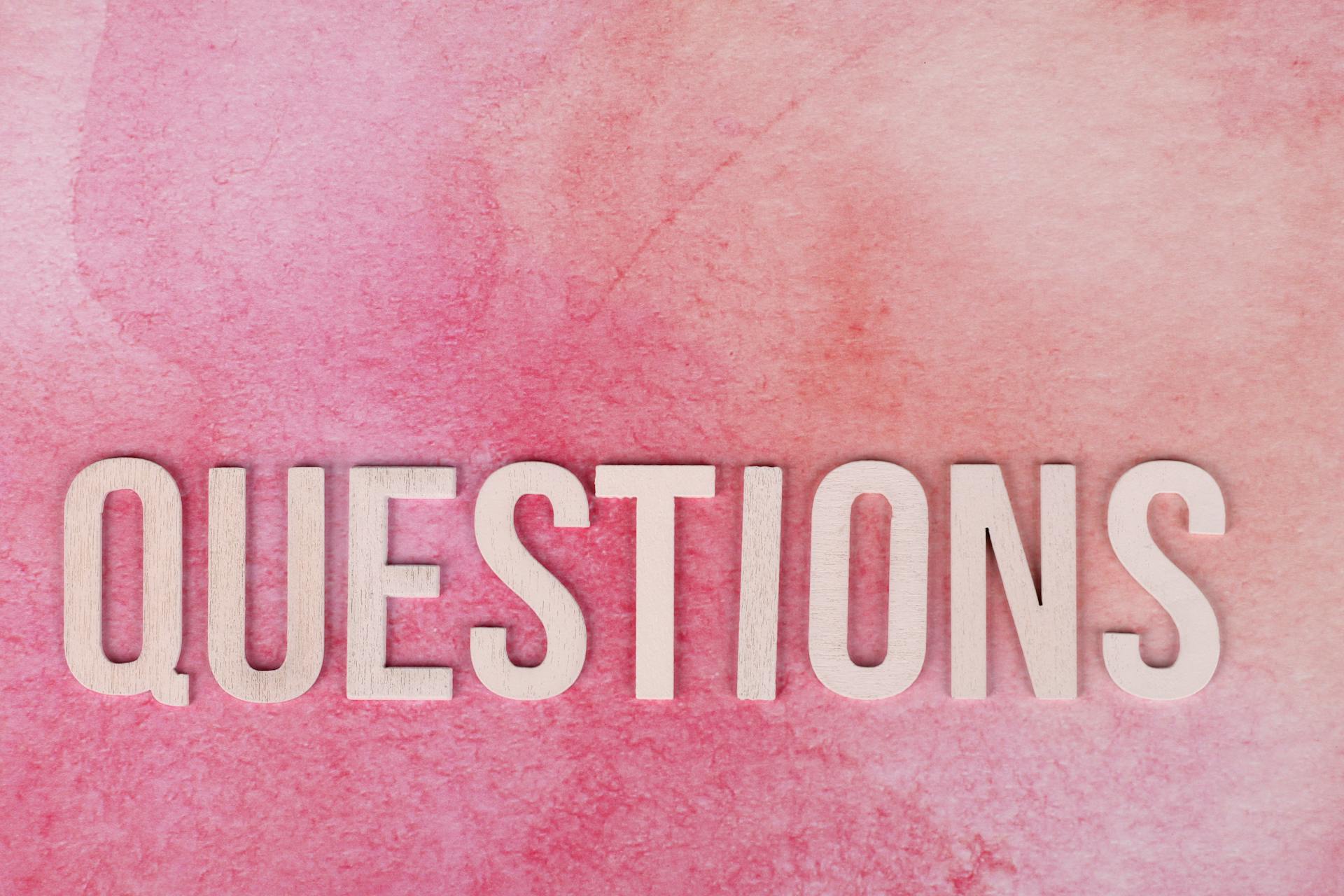
Are you feeling stuck in your life? Do you find yourself asking philosophical questions like "What is my purpose?" or "Am I living up to my potential?" If so, it's time to make a change. Brianna Wiest's new daily meditation book can help you transform your life and become the person you want to be.
In her book, Wiest guides readers through daily meditations that are designed to help them tap into their inner wisdom and find clarity. Whether you're struggling with self-doubt, anxiety, or simply feeling lost, this book offers practical tools for self-discovery and personal growth. With its easy-to-follow format and inspiring messages, it's the perfect companion for anyone who wants to make positive changes in their life.
Discover What's Inside: A Guide to Our Sections
Philosophy questions are all around us, from the profound to the mundane. At times, they can be simple and straightforward, while other times they may challenge our very existence. If you're looking for fun philosophical questions related to art, music or daily life, you've come to the right place.
But philosophy questions go beyond just entertainment. They can help us examine our beliefs and values, and think more critically about the world around us. From human rights to challenging ethical questions, philosophical questions can guide us in making decisions on how we vote, spend our money or interact with others.
So if you're ready to start exploring the world of philosophical questions, then check out our sections where we dive deep into abstract philosophical questions as well as philosophical questions related to everyday life. With final thoughts on talk philosophy and world thinking, you'll be sure to discover something that will make you think twice about the choices you make every day.
Thoughtful Philosophical Questions on Metaphysics
Metaphysics is a branch of philosophy that deals with questions about the nature of reality. It explores the fundamental principles of existence, including what things exist and how they relate to one another. Some of the most thoughtful philosophical questions in metaphysics revolve around the concept of causation. Is causation real, or is it merely an illusion created by our minds?
Another intriguing area of metaphysical inquiry concerns the nature of space and time. Are space and time real, or are they simply human constructs? Some philosophers argue that these concepts are fundamentally subjective, while others believe that they are objective features of the universe.
Finally, many metaphysicians explore questions about freedom and determinism. Do humans possess free will, or are we fated to act in certain ways? Are immaterial souls responsible for our actions, or do material components alone determine our behavior? These questions are complex and far-reaching, touching on some of the most fundamental aspects of human existence. Ultimately, they challenge us to think deeply about our place in the universe and what it means to be alive.
Discussing Philosophy with Others: Closing Reflections
Philosophical questions can be challenging topics to discuss, but they can also lead to some of the most interesting conversations you'll ever have. When you raise perspectives on big questions like what beautys nature is or how the world informs our lives, you can tap into critical thinking muscles you might not use during your free time. Whether it's just an occasional philosophical question that comes up or a full-blown dinner party with 257 questions on the agenda, talking philosophy with others is always an exciting conversation.
However, it's important to remember that not everyone reacts well to deal-breaker conversations. Some friends may shy away from discussing life and children with you, while others may dive right in. If you're hosting a big crowd for a philosophical debate, be prepared for a variety of reactions from your guests - and don't take offense if some people choose not to participate at all. It's all about creating an environment where people feel comfortable sharing their thoughts.
Closing reflections on discussing philosophy with others: don't underestimate the impact these conversations can have on your son, daughter, niece, nephew - or even yourself. By engaging in critical thinking exercises and exploring big questions together, you're instilling valuable lessons and lifelong skills in those around you. So keep asking those occasional philosophical questions whenever the opportunity arises - who knows where the conversation might take you?
1. If you liked this article...
If you liked this article about philosophical questions, then you'll love our compilation of 10 interesting conversation starters that will lead to great conversations. We've gathered 36 deep questions, 450 fun questions, and even 5 stupid questions - because sometimes it's good to have a laugh. And if you're looking for date questions backed by science, check out our list of 13 great ones. So keep the conversation flowing with these thought-provoking prompts!
Philosophical Questions to Ask Kids

Philosophical questions can be a great way to get children thinking deeply about the world around them. Children philosophy is an important part of their development and can help them understand the world better. Despite having fewer life experiences, small children are capable of answering philosophical questions just like adults.
Differentiating emotions is an essential part of life that children realize as they grow up. By asking philosophical questions, you can help your child differentiate between feelings and thoughts. They'll learn to identify what makes them feel happy or what makes things wrong.
Lastly, philosophical questions can also help teach values such as protecting people, holding everyone equally accountable, helping people make decisions that feel good for them, and understanding why social media can be both good and bad for us. By introducing these topics to your child through philosophical questioning, you're helping mold their future perspectives on the world around them.
Philosophical questions about science and technology

Philosophical questions about science and technology are becoming increasingly important in modern age as technological advancement continues to shape our lives. Is technology progress a net positive or net negative for humanity's progress? There is no easy answer to this question, as the biggest effect of scientific breakthroughs on society is often difficult to predict, but incremental improvements have shown that progress can be slow, but steady.
One of the most significant philosophical questions about science and technology is whether humans exist in a technologically enhanced world. As we continue to make greater strides towards true artificial intelligence and human augmentation, it's possible that we may not be completely human anymore. In a world where cheap genetic engineering industry existed and genes could be edited with ease, would we still consider ourselves fundamentally human?
If Star Trek existed in a single time frame, the concept of what it means to be human would radically change society. We could become completely machine or even completely dead while still existing in some form due to biochemical reactions that control emotions within us. The ethical implications of such developments are deep conversation topics page; they raise questions about the limits of human race check over technological progress and whether we are headed towards a peaceful place or one dominated by those who hold full access to the latest technological breakthroughs.
Philosophical questions about society and government
Philosophical questions about society and government are some of the biggest moral dilemmas that we face as a global community. The way societies exist today is completely avoidable, but we still have not found an accurate measure for what makes successful human communities. Societies begun with small tribes, which eventually grew into agricultural revolutions and modern world countries, but the basic things that make a good citizen provide for their society culture remain unchanged.
One of the biggest threats to society inevitable is its own negative trait of creating groups that exclude others. This detrimental trend can be seen in past 10, 50, or even 1000 years ago when technology did not exist. In our modern world, social media algorithms and AI continue this negative trend by causing harm through echo chambers that amplify extreme views. However, it is possible to escape tribalism and create a net positive effect on society if we work together towards a common goal.
The role of government in maintaining general human flourishing is a topic that has been debated for centuries. Some argue for a global government or world government, while others believe power assuming by a single person or legislation is a bad thing. Nonetheless, the ideal government must provide equal chance to all citizens and ensure tax dollars spent are for the benefit of society as a whole. Ultimately, being a good citizen means contributing to society rather than solely relying on what the government can provide.
Discovering the Roots: The Birth of Western Philosophy

The history of western philosophy dates back to the 6th century BC, when pre-Socratic philosophers tackled inquiries that created the main findings of philosophical thought. The classic philosophical questions, including elements such as atomism, were developed during this time. From the 4th to 5th centuries BC, great classic philosophers like Socrates and Plato were born. Socrates focused on ethics while Plato blended his ideas with epistemology.
Aristotle created a comprehensive system that included ideas about science and epistemology. Medieval philosophy followed in the 4th and 5th centuries AD, while early modern philosophy began in the 17th century. Modern philosophy continued into the 19th century with famous philosophers like Karl Marx, Ralph Waldo Emerson, and Henry David Thoreau contributing to it. Marxism and romanticism were highly esteemed pieces of this time.
In the 20th century, philosophy continued to evolve with present-day theories and inquiries being developed by famous philosophers. The enlightenment alongside Kant brought about new questions that are still being explored today. Today's inquiries include logic, metaphysics, ethics, and aesthetics among others. Philosophy remains an integral part of our world as it seeks to understand our place in it through critical thinking and reflection.
Fun Philosophical Questions
Philosophical questions can be heavily intellectual and overwhelming, but they can also be fun and thought-provoking. For instance, if a hot dog is not a sandwich, then what is it? Do memories exist or are they just figments of our imagination? Do grass and trees feel pain like humans do?
When it comes to ethical and unethical behavior, philosophical questions abound. Is it morally wrong to time travel and change history? Are jokes funny even if one person doesn't find them amusing? If a joke is flawed or has a lousy sense of humor, should we still laugh at it?
Humans have the responsibility to consider how their daily choices impact others' lives. How does our financial support of inanimate objects and fast fashion negatively impact the manufacturing methods used today? Should humans extend fundamental rights to wild animals or only focus on the human race's survival? Technological advancement has minimized bad elements in society, but governmental structures remain innately evil. What makes a good leader, and how can we protect society from those who behave unjustly?
PDF and Image of Philosophical Questions

Have you ever found yourself lost in thought, pondering the big questions in life? Questions like, "What is the meaning of life?" or "Do we have free will?" These are what we call philosophical questions, and they can be both fascinating and challenging to explore.
If you're looking to dive deeper into these philosophical questions, there are resources available to help you. One such resource is a PDF or image of philosophical questions, which can provide a jumping-off point for your exploration. These documents often contain a list of thought-provoking questions that can help you dig deeper into your own beliefs and ideas. So if you're looking to expand your mind and engage in some deep thinking, consider checking out a PDF or image of philosophical questions today.
Philosophical questions about human nature and the human condition
Philosophical questions about human nature and the human condition are some of the most profound and thought-provoking topics out there. They force us to confront some harsh truths about ourselves and our world, like whether fate exists or not. Ultimately, they challenge us to live a good life, rather than just a normal one.
One of the most pressing philosophical questions is where humanity is headed. Are we going in the wrong direction? And can we attain happiness despite this? It's an important goal, but difficult to achieve. We often feel like small fish in a big pond, struggling to find our place in the world. But with a broad knowledge base and deep conversations on topics like self-knowledge equaling personal purpose, we can contribute back to society and find meaning in our lives.
In thinking about the human condition, it's easy to get caught up in life-altering things like genetics or living forever through atomic-level alterations. But it's important not to lose sight of the smaller things that make life worth living - like finding joy in small miracles or contributing positively to our communities. Likewise, while art can provide tremendous value to society, it can also hurt if used for negative purposes. The biggest successes and largest failures tend to come from achieving absolute power corrupting absolutely - so let's focus on living worthwhile lives by driving humans towards their potential while avoiding purely negative emotions!
Philosophical questions about the human mind, consciousness, and intelligence
Philosophical questions about the human mind, consciousness, and intelligence have perplexed scholars and researchers for centuries. One of the most fundamental questions is how to define consciousness. Some argue that it has to do with chemicals flowing through our brains, while others believe in magical thinking.
Another question is whether intelligence can be accurately simulated or even defined. From an evolutionary standpoint, we know that certain organisms perceive reality differently from others. This raises the question of whether intelligence is inevitable or not. Assuming evolution continues for a long time, will all organisms eventually develop consciousness?
Finally, there is the question of human creativity and how it relates to rational thought. Can someone crave things they have never previously existed? And if so, how does this tie into political leanings or language influences? Additionally, human memory is incredibly unreliable, which raises the question of whether a single person's reality can ever truly be considered real-time or if there will always be a slight delay in perception.
Discovering the Essence of a Philosophical Question

Philosophical questions typically involve human nature and the universe's morality and ethics. These complex beings require deep thought to understand them thoroughly. Unfortunately, there is no clear straightforward answer to most philosophical questions.
When discussing human nature, philosophical questions often arise about what makes people feel innately good or bad. However, despite diverse people groups, there are some moral commonalities that make individuals important. For example, is the death penalty a helpful tool in decreased or increased crime rates? Can someone change from being a bad person to a good person through their actions? Is someone's personality or intentions what makes them good or bad?
Love is an intrinsic aspect of human nature that necessitates action. People have an innate desire to express love, and it can take many diverse expressions like parental friendship and romantic love. While love can be a good thing, unreciprocated love can affect people negatively. It is also possible for love to change over time as people grow and evolve. Understanding how to show love to others is a critical thought process that everyone should explore by learning more about their love language- pro tip: if you're interested in showing love read "The Five Love Languages" by Gary Chapman!
Epistemology Inspired Philosophy Questions

Epistemology is a branch of philosophy that deals with how humans acquire knowledge. It seeks to understand the nature of knowledge, justification, and belief. One of the most fundamental concepts in epistemology is justified true belief, which distinguishes knowledge from mere belief.
In order for a belief to be considered knowledge, it must meet three conditions: it must be true, the person holding the belief must believe it to be true, and there must be sufficient justification for the belief. The justification process can come from various sources such as sensory experience or reasoning, but it must be internal to the individual.
Epistemology-inspired philosophical questions often revolve around attempting to understand how we know what we know. Some examples include: What is the relationship between truth and knowledge? Can we ever truly know anything beyond our own subjective experience? How do we determine if something is justified true belief or merely a false belief? These questions challenge us to think deeply about our understanding of reality and the limits of human perception.
Philosophical Questions Related to Culture

When we think of culture, we immediately notice surface-layer cultural differences, such as language and the food people eat. But beyond that are deep-seated differences in perspectives that make any cross-cultural communication a complicated issue. For example, some cultures discipline children with physical punishment, while others adopt a more family-oriented culture. Individualistic cultures are often seen as intrinsically selfish, whereas those with a collectivist mindset prioritize the group over the individual.
The morality developed within a culture form the basis for how they view right and wrong actions. However, income plays an important role in how people define success and their attitudes towards breaking minor laws. Think about it: if you were recently relocated from a country where your counterpart raised you to believe that certain group practices like human sacrifice are acceptable, would you maintain that same belief system? Culture is a construct created by humans and recorded fascination with space reaches back to ancient philosophers who used astronomy to compel deeper thinking.
The past 75 years have seen significant advances in technology that have allowed us to explore space and its impact on our day-to-day life. Space exploration has led us to question the universe's origin and how it affects us today. Does the existence of an inhabitable planet imply that there exists due responsibility for humans left on Earth? What moral implications come into play if we were to discover that there is no longer an inhabitable planet available for living beings? Will this world be eternal, or will time continue even if the human species no longer exists? And what good or bad could come from space travel if we were able to prove definitively whether or not a deity exists?
Exploring Thought-provoking Ethical Dilemmas
Philosophical questions are inquiries that ponder the nature of existence, reality, and knowledge. The vast field of philosophy encompasses several philosophical subtopics, including epistemology, metaphysics, logic, ethics, and aesthetics. Ethics involves weighing moral ground and assessing the right or wrong in challenging scenarios. Incredibly challenging ethical dilemmas raise profound questions worth thinking about deeply.
One of the most debated ethical dilemmas is whether committing medically induced suicide is morally responsible. Another controversial topic is President Harry Truman's decision to drop atomic bombs on Hiroshima and Nagasaki during World War II. Was killing civilians to end the war quicker ethical? These complex issues highlight how our worldview impacts how we make day-to-day decisions.
Eating animals for food when we have other means of protecting ourselves is also a widely debated issue. Should we test products on animals when alternative methods exist? If you were in a car accident and could save someone's life by donating your organs but weren't registered as an organ donor, would it be unethical not to donate? These thought-provoking ethical dilemmas challenge us to consider if there exists an absolute truth or whether individual perspectives shape what we believe is right or wrong.
Some Philosophical Thoughts on Ethics and Morality

Human life is often justified by the rights that people expect to have in society. However, these rights can change based on the individual's personality traits, which are partly genetic and can be altered through gene therapy. While negative character traits like extreme aggression or compulsive lying can accurately predict whether someone will commit crimes, individuals are not ethically obligated to save another's life.
Business owners should have the free speech right to refuse service to anyone they associate with beauty, as long as it is not for reasons that are universally considered evil such as mass murderers who are considered innocent until proven otherwise. However, denying entry means death when it comes to terraforming planets or destroying undiscovered microscopic alien life. In general, anonymity encourages people to act out of hatred, fear, ignorance, and jealousy – which also weaken moral obligation.
In the end, morality is dependent on emotional distance from other beings in a universe full of potential threats. This human trait can shape how we view our continued existence and defend humanity against advanced races or natural disasters. Pure altruism is rare since people expect something in return like a million dollars or just feeling good about themselves – even if those expectations change based on government ethical standards or eventual death.
Philosophical questions about the universe and reality

Philosophical questions about the universe and reality have been at the forefront of human curiosity for centuries. We want to understand the true depths of our existence, and if there is an inherent order to it all. But how do we even begin to find truth in science, math, art, and philosophy? Humans created these fields to help us make sense of the world around us, but can they truly provide accurate representations of reality?
One area that has challenged our understanding of reality mathematically is quantum physics. It has shown us that things work in ways that don't always align with our known laws of physics. This has led some to question whether our understanding of reality is limited by the human mind's ability to comprehend it fully.
Despite these challenges, philosophical questions continue to drive us forward in our quest for knowledge and understanding. By exploring these questions, we can gain a deeper appreciation for ourselves and the universe we inhabit.
Frequently Asked Questions
What are the “bigger” questions that address philosophy?
The bigger questions in philosophy are those that deal with the nature of reality, morality, existence, and knowledge. They aim to explore the fundamental principles of human experience and understanding.
What are deep philosophical questions?
Deep philosophical questions are inquiries into the fundamental nature of existence, reality, knowledge, morality, and human experience. They often challenge our assumptions and beliefs about the world around us, and require careful reflection and analysis to answer.
Can philosophical questions help you think critically?
Yes, philosophical questions can help you think critically by encouraging you to analyze and question your own beliefs, values and assumptions, and consider alternative perspectives. This can enhance your ability to reason logically, evaluate evidence, and make informed decisions.
What is Paris Hilton's signature catchphrase?
Paris Hilton's signature catchphrase is "That's hot."
Who is Jennifer Hilton's husband Carter Reum?
Carter Reum is the husband of Jennifer Hilton, an American entrepreneur, and socialite.
Featured Images: pexels.com

